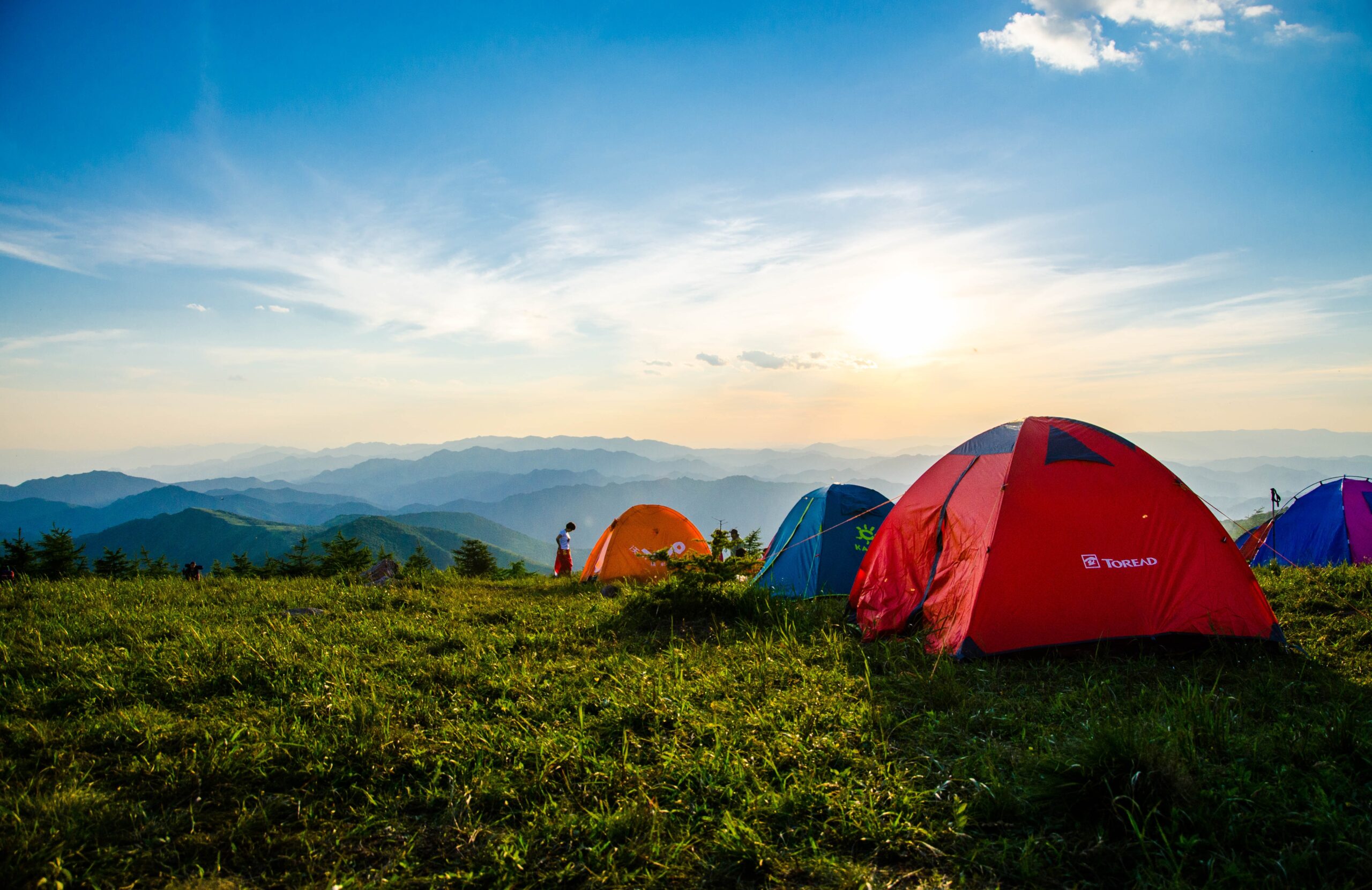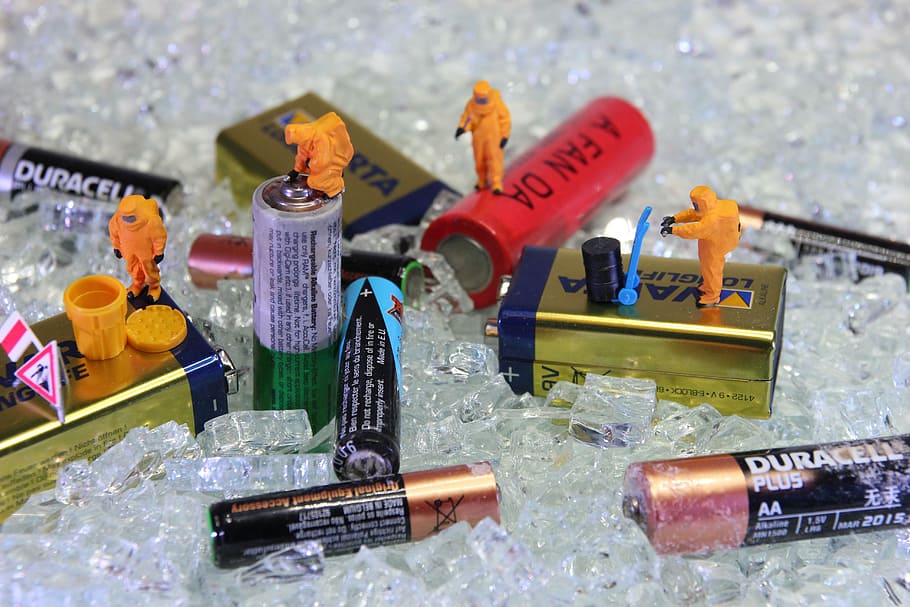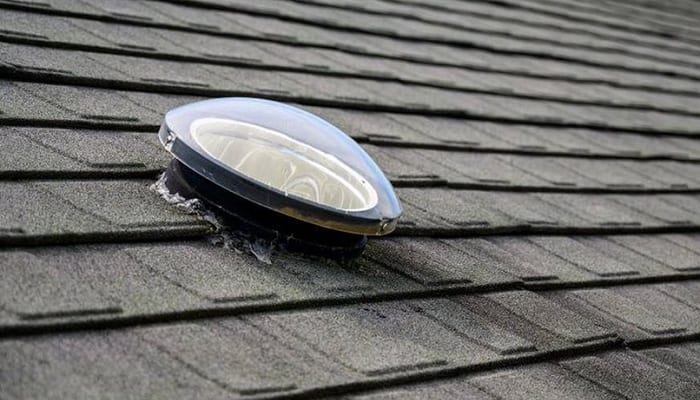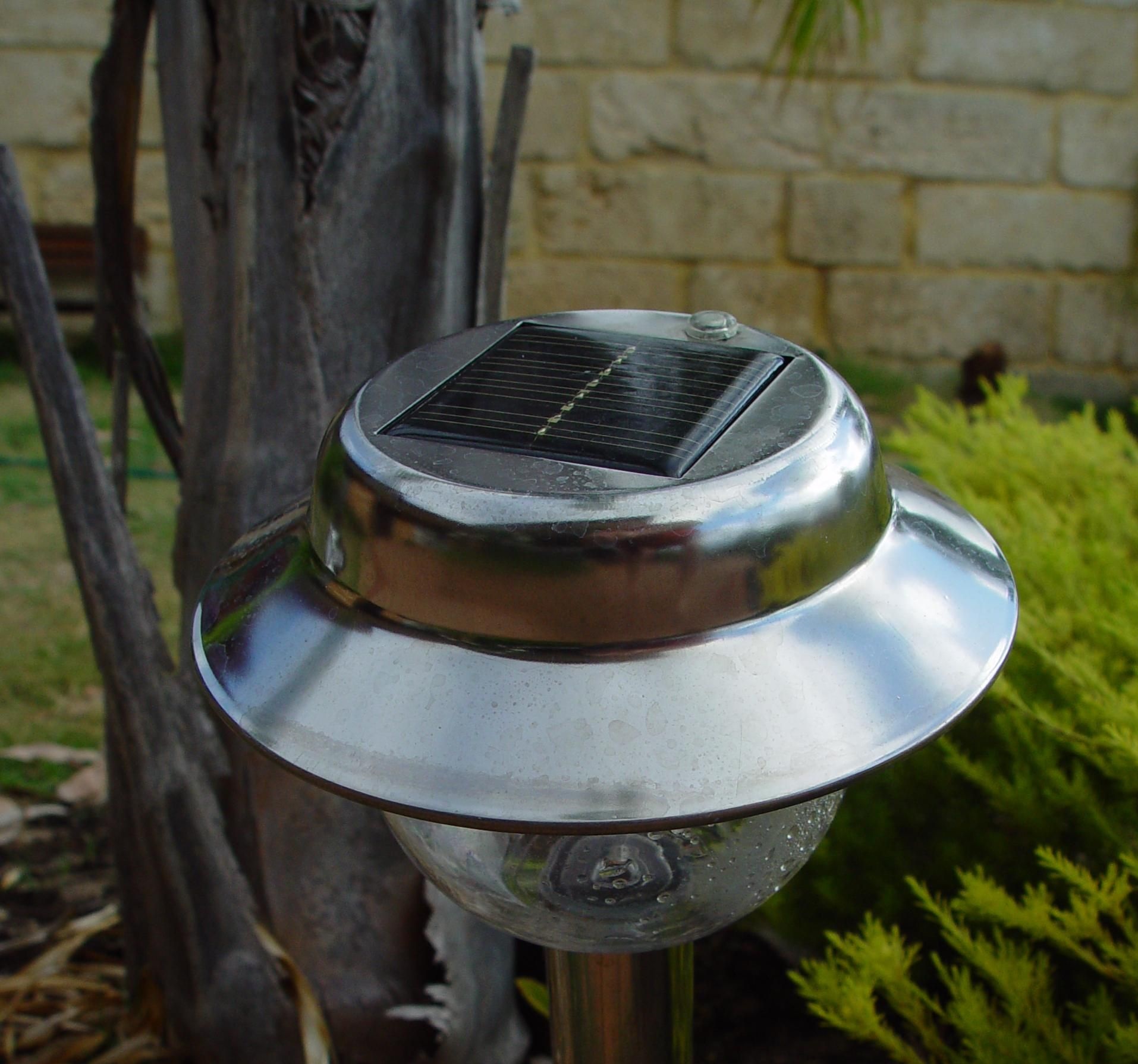Unless you want to be entirely disconnected, having camping solar panels on your next outdoor adventure is a good idea. They’re a reliable power source that can help you stay safe, warm, or up to date, even in remote locations.
Camping solar panels add convenience and are easy to use. In this article, you’ll read about the different types and how to choose the best solar panels for your RV or tent.
What Are Camping Solar Panels?
If you like camping in remote areas, having a reliable and sustainable power source is a great idea! Camping solar panels are lightweight, portable, and easy to use. They’re ideal for camping, hiking, and other outdoor activities.
Camping solar panels are made from photovoltaic cells, like regular ones. They capture energy from the sun and convert it into direct current (DC) electricity. You can store the power generated in batteries or use it to charge phones, cameras, or your GPS.
Larger solar panels can keep essential appliances running and ensure you have lights in an emergency.
The Different Types of Camping Solar Panels
You can choose between various solar panels for your camping needs. Below is a comparison:
Monocrystalline vs. Polycrystalline vs. Thin-Film
| Solar Panel Type | Description | Efficiency | Appearance | Cost |
| Monocrystalline | Single-crystal silicon | High | Dark Black | Expensive |
| Polycrystalline | Multiple silicon crystals | Moderate | Blue Hue | Cost-effective |
| Thin-film | Thin layer of semiconductor material deposited on a surface | Low | Varies | Inexpensive |
Portable vs. Fixed Panels
| Solar Panel Type | Description | Portability | Size | Intended Use |
| Portable | Designed for easy transport, can be rolled up or folded | High | Smaller | Ideal for frequent travel |
| Fixed | Mounted onto stationary structure | Low | Larger | Intended for long-term use |
Choosing the Right Camping Solar Panel For Your Needs
There are a few factors to consider when choosing solar panels for your next trip. Here are some essential features of camping solar panels to think about:
Wattage: The wattage of a solar panel determines how much energy it can produce. Consider your power needs and select a solar panel with an appropriate wattage to meet them.
Size and Weight: The size and weight of a solar panel can affect its portability and ease of use. You should think about the amount of space you have available for storage and transportation. If you’re a solo traveler, I suggest choosing a smaller panel that’s easier to carry around.
Durability: Camping solar panels are exposed to various weather conditions and environmental factors. You should choose a panel that is durable enough to withstand the elements you expect to face. If you camp a lot, consider regular use too.
Charging Speed: The charging speed of solar panels varies. Sunlight intensity and panel efficiency are two factors that influence this. You should consider how fast you need your panels to charge based on the weather conditions where you’re camping.
Compatibility with Camping Gear: Some camping solar panels have specific connectors or adapters. These may not be compatible with your camping gear. Check the panel’s compatibility with your other camping equipment to ensure seamless integration.
The Best Solar Panels for RV Camping vs. Tent Camping
Whether you prefer an RV’s convenience or a tent’s simplicity, having the right solar panels makes all the difference! You should choose camping solar panels that are best for your RV or tent so you can stay charged and connected easily.
The Best Solar Panels for RV Camping
Fixed solar panels are an ideal option for RV camping. You can mount them onto your RV’s roof for a reliable power source. Most camping solar panels designed for RVs can tilt for maximum sunlight exposure.
Here are the wattage requirements of common appliances or devices that may be in your RV:
- Refrigerator: 100-200 watts
- Air conditioner: 1500-3000 watts
- Heater: 1000-2000 watts
- TV: 50-400 watts
- Microwave: 500-1500 watts
- Laptop: 50-100 watts
- Lights: 5-50 watts
- Water pump: 50-100 watts
- Blender: 300-1000 watts
A typical solar panel can produce between 250-400 watts of power. If you have a refrigerator (200 watts), lights (20 watts), water pump (50 watts), and a laptop (50 watts) that you want to use for 5 hours per day, the total watt-hours you need is:
(200 + 20 + 50 + 50) x 5 = 1600 watt-hours
If you camp in an area with 5 peak hours of sunlight, you would need a solar panel with an estimated capacity of at least:
1600 / 5 = 320 watts

The Best Solar Panels for Tent Camping
Portable solar panels are a better option for tent camping. They are lightweight, and you can easily set them up wherever you are. I suggest choosing a panel with a lower wattage. Thin-film panels may be a good option. They are easy to transport and flexible enough to fit irregular surfaces.
Here are the average wattage requirements of some devices you may want to power when tent camping:
- Tent fan: 10-40 watts
- LED lights: 5-20 watts
- Portable speakers: 10-50 watts
- Phone charger: 5-10 watts
- Portable cooler: 30-80 watts
Portable solar panels for tent camping typically range from 10 to 100 watts. If you have a tent fan (20 watts), LED lights (10 watts), portable speakers (20 watts), and a phone charger (5 watts) that you want to use for 4 hours daily, the total watt-hours you’ll require are:
(20 + 10 + 20 + 5) x 4 = 220 watt-hours
If you camp in an area with 5 peak hours of sunlight, you would need a solar panel with an estimated capacity of at least:
220 / 5 = 44 watts
Stay Connected and Powered Up with Camping Solar Panels
If you like spending time outdoors, camping solar panels are a great investment. They’re convenient, sustainable, and easy to use. With a reliable source of clean energy, you won’t have to worry about running out of power or harming the environment on your camping trips.
Was this article helpful? Let me know in the comments! If you have more questions you can add them there too.



